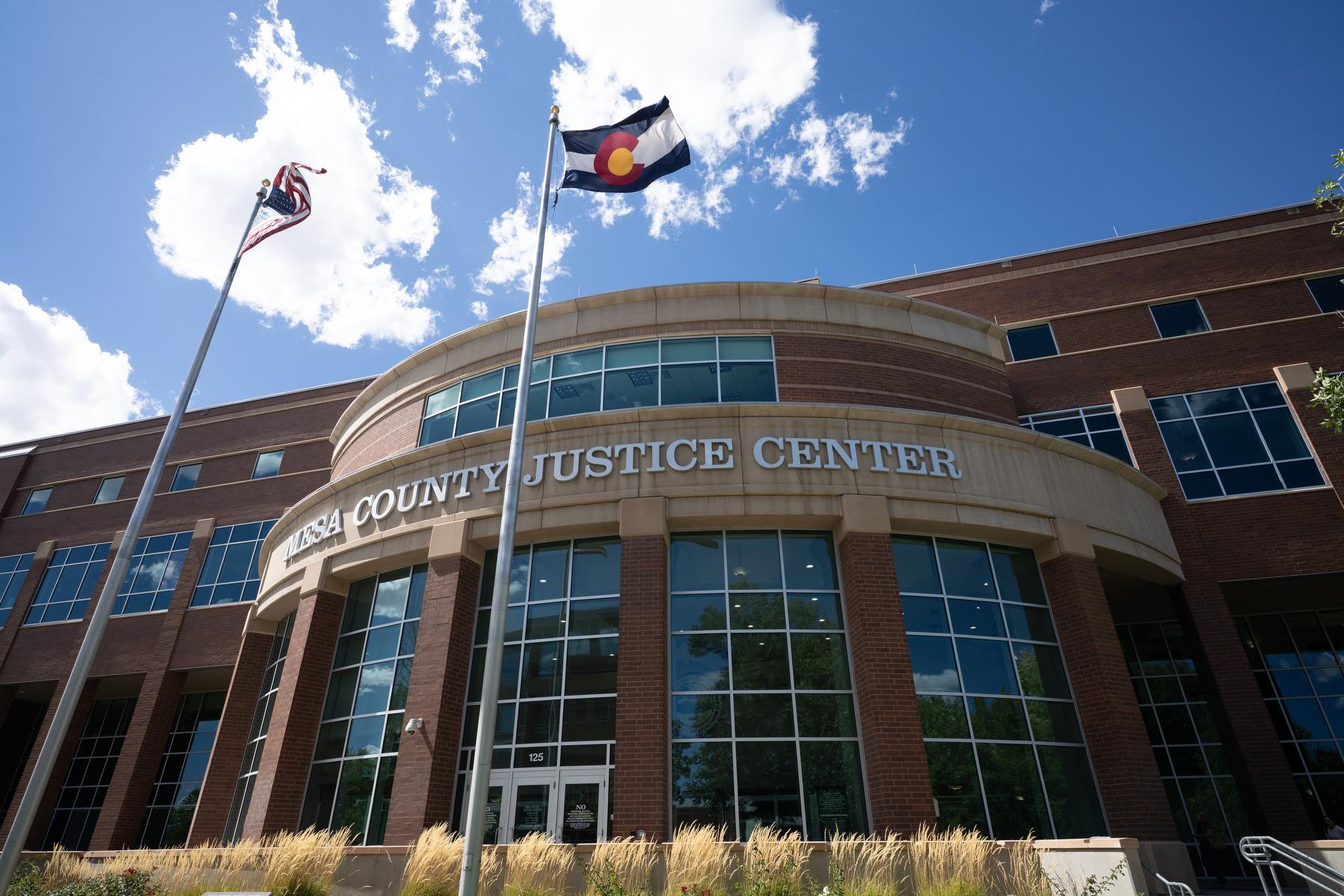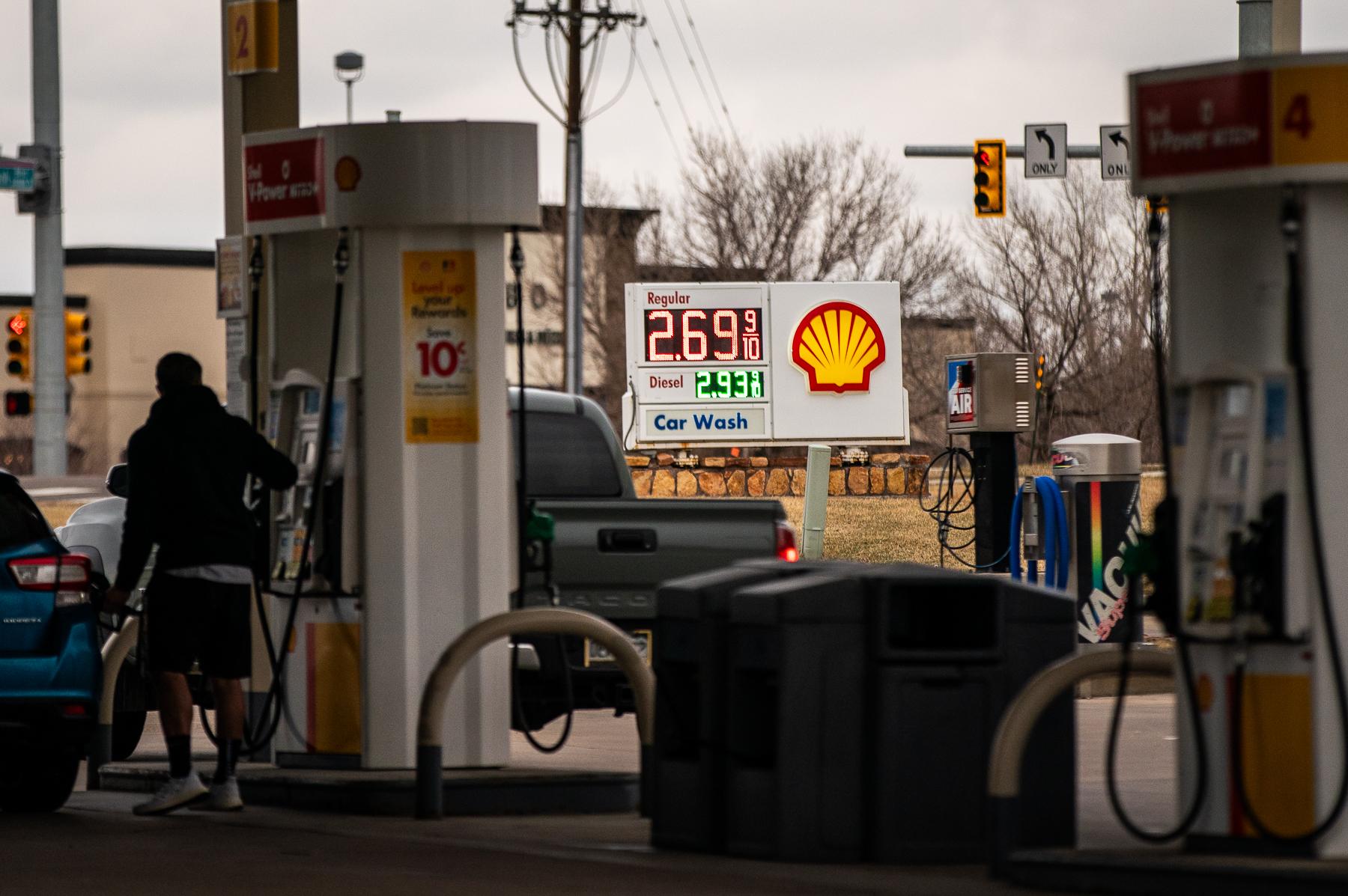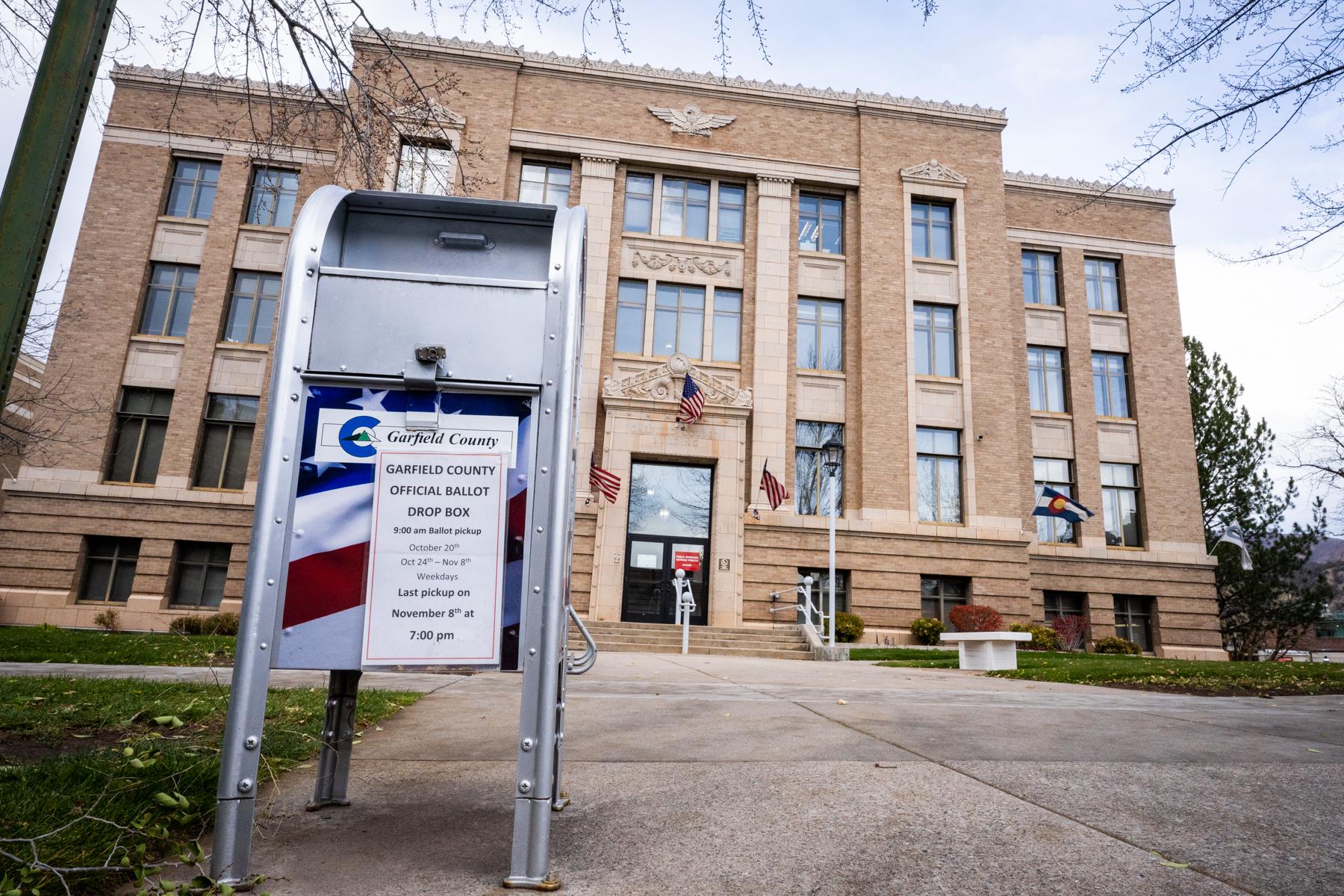
It's a month before the 2024 Presidential election, but in many ways, whether it's on a debate stage in New York City or a courtroom in Grand Junction, the 2020 race is still being adjudicated.
Matt Crane, the head of the Colorado County Clerks Association, said questions of election security are the impetus for any lingering doubts – and he expects the conversations to continue for some time.
“If anybody thinks it's over, they're out of their minds because this is going to go on the reverberations of this for a long time yet to come, and it's going to be a marathon, not a sprint to try to rebuild voter confidence,” Crane told Colorado Matters Host Ryan Warner. “But as long as we still have candidates out there who refuse to say that they'll trust the results of the election based on if they win or lose, we've got big problems and a lot of work to do.”
Crane was referring to an exchange between Tim Walz and JD Vance during the recent vice presidential debate that questioned the outcome of the race between Joe Biden and Donald Trump. That came days before Tina Peters, the former clerk for Mesa County was sentenced to nine years in prison for her role in facilitating unauthorized access to county voting equipment that she was supposed to safeguard in search of voter fraud.
Crane, who said skeptical citizens should tour their local election facilities or sign up to become election judges, also addressed allegations on the security of the state’s drop boxes for returned ballots.
“They're all under camera; every Dropbox in the state is under 24/7 video surveillance,” Crane said. “We have bipartisan teams that go out to sweep to pick up the ballots from those ballot boxes every day in the metro area. There's a tight chain of custody around that, and all of these processes we keep working and improving.“
This interview has been edited for length and clarity.
Ryan Warner: Let's start with Tina Peters, whom you've called in the past, a low-information clerk. You were in Grand Junction to address the court before that nine-year sentence was handed down. Why was that important to you?
Matt Crane: Well, District Attorney Rubenstein called and asked me to come and provide an impact statement about the impacts that Tina's actions have had on election officials here in Colorado and across the country, and on elections generally, voter confidence, some of the violent rhetoric around elections. And my message to the judge yesterday, I was grateful for the opportunity to go and deliver remarks on behalf of clerks here in Colorado and across the country. But my message yesterday to the judge was, the damage done by Tina has been immeasurable for a lot of different reasons because of death threats that clerks now face, because people have tried to intimidate clerks into doing illegal activities like Tina did. It's impossible to underestimate the damage that Tina's done.
Warner: In an exchange with you, the judge seemed surprised to learn that Tina Peters hadn't completed the training to become a certified election clerk. Could that still happen today?
Crane: No. As a matter of fact, it can't. We changed the law. So this happened in 2021, and in the 2022 legislative cycle, the (Colorado County Clerks Association) led the way in trying to strengthen laws around insider threats and making sure that clerks knew their jobs for two reasons. One, we want to deliver the best elections we can, and Tina had plenty of issues running just the basic blocking and tackling of elections when she was in charge of elections in Mesa County. But two, what's also equally important is if you come in and you get trained, and you understand these jobs, how they work, how these systems work, it will inoculate you from a lot of the BS that's out there that's pushed by election deniers. And so now the law is you have to get certified within six months or you could be removed as a designated election official in your county. You'll still be clerk and recorder, but the election duties can be taken away from you.
Warner: Is the sentence just right, in your opinion, too harsh, too light?
Crane: I think it's just right. Judge Barrett did a masterful job going through and talking about the different options he had to sentence her with and then why he made the decisions that he did. And we were very pleased. We had asked for him to sentence her to as much as possible. And I think nine years sends a very clear message that if you lie to government officials if you undermine election security the way that she did if you make our elections less secure, there's a stiff penalty to that. And we were very pleased with the outcome.
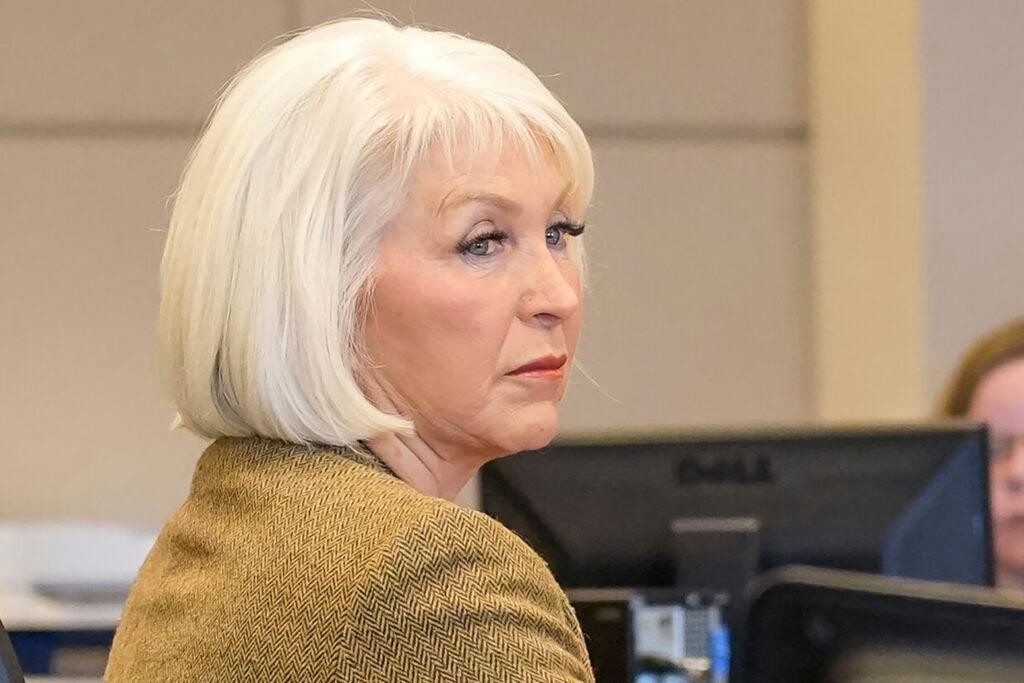
Warner: You spoke of the impacts to clerks and clearly to a deterrence as well here. So do you think there's a deterrent effect?
Crane: Well, I certainly hope so. I mean, I think that some of that's to be born out in the future here, but I certainly hope so. I mean, it's very clear that if you break the law in this way and if you undermine our election systems, and let's be clear, this wasn't just a Colorado issue. Tina by letting her voting system image get on the internet, allows bad actors anywhere in the world to look at that voting system image, try to find pathways, a roadmap to be able to do nefarious things, and then if they ever got physical access to these components, they could try to do something nefarious. So it's not just a Mesa issue or a Colorado issue, it's a national issue of election security that Tina violated here. So my hope is that with this strong penalty, that it will deter people.
Warner: It makes sense to me that you would answer on behalf of clerks as the head of the Colorado County Clerks Association, but what has all this meant for you personally?
Crane: Well, it's tough, right? I mean, I've worked in election administration here in Colorado since 2000, so my 24th year. I also help other states and other jurisdictions across the country with election processes and security. I grew up, this is very much a career path for me, but it's also a passion. And you and I have talked about this before, the ethos of people who do this work, right? Where people have fought and died for this right. People have marched and been beaten and died for this right to vote. And when somebody from the inside violates that there's no deeper cut for people, for the men and women who take this job seriously and understand our place in the American fabric to help facilitate free and fair elections. There's no deeper cut. And then when you stand up and tell the truth and push back on it, to get death threats, to have my wife and my children threatened. One of our clerks was pregnant when this was going through and her unborn child was threatened. So again, the impacts of this have been immeasurable.
Warner: Presumably the reason Mike Pence is not Donald Trump's running mate this time is that Pence refused to help Trump thwart certification in 2020. What do you make of his new running mate, JD Vance dodging the question of whether Trump lost? And I'll just point out, you're a Republican.
Crane: It is disappointing, but it's not unexpected. I don't think that President Trump would have invited anybody to be his vice president unless they would answer that question the way that he would want them to. And so it's disappointing that this is still an issue. President Trump, I think earlier this week, was asked a question, "Will you trust the results?" He said, "I don't know, ask me in 35 days." So all of this rhetoric, it's still there. That's why somebody asked me yesterday, "Are you glad that Tina Peters thing is over?" And am I glad justice is served? Yes, but if anybody thinks it's over, they're out of their minds because this is going to go on, the reverberations of this, for a long time yet to come, and it's going to be a marathon, not a sprint to try to rebuild voter confidence. But as long as we still have candidates out there who refuse to say that they'll trust the results of the election based on if they win or lose, we've got big problems and a lot of work to do.
Warner: Yet more related news this week, that legal brief by special counsel Jack Smith in the election interference case against Trump. The brief references in exchange in December 2020 that then-President Trump spoke with the head of the Republican National Committee. He asked her to publicize a report that claimed to have found flaws in voting machines in Michigan from a company called Dominion. Ronna McDaniel, head of the RNC called the report nuts. She used more colorful language than that.
Crane: I would too, by the way.
Warner: Indeed. Dominion, which is partially based in Denver, has been falsely impugned over and over again. The firm services 62 of Colorado's 64 counties. What might you like voters to understand who've heard the deluge?
Crane: Well, first of all, that's such a great question, and there's so much. One, all of the claims about Dominion in 2020 were outright lies, whether it was in Michigan, whether it was in Georgia, whether it was in Arizona, and there is so much information that I could give you there's not enough time in this interview to go through each of those lies and debunk them one at a time. I would love to do that sometime with you. But in terms of where we are now here in Colorado and why voters should have confidence, one is just knowing those were all lies before for political and financial gain. Two, the work that we've done in Colorado over the last four years, people think, "Okay, clerks say everything's fine. There's nothing to see here. Move on." Nothing could be further from the truth. The men and women who are clerks and recorders here in Colorado and their teams work every day to improve our systems, both in terms of access and security.
So we continue to build out stronger access controls around the voting systems to make sure only the appropriate people are near them. We have better camera coverage now than we ever have. We're refining our testing and auditing processes to make sure that voters can trust that the outcome of the election reflects the voter's will. We also continue to push forward on transparency, so we continue to encourage, if you have questions, come learn the truth from the experts. Come in and take a tour of your election facility. Better yet, sign up to be an election judge where you can be the ones who actually do the work of verifying voter eligibility, of tabulating ballots, of picking up ballots from ballot boxes and bipartisan teams. We are completely open and transparent. We welcome questions, but we are quite confident that voters should cast their ballot with great confidence that their voice will be heard and counted accurately this year.
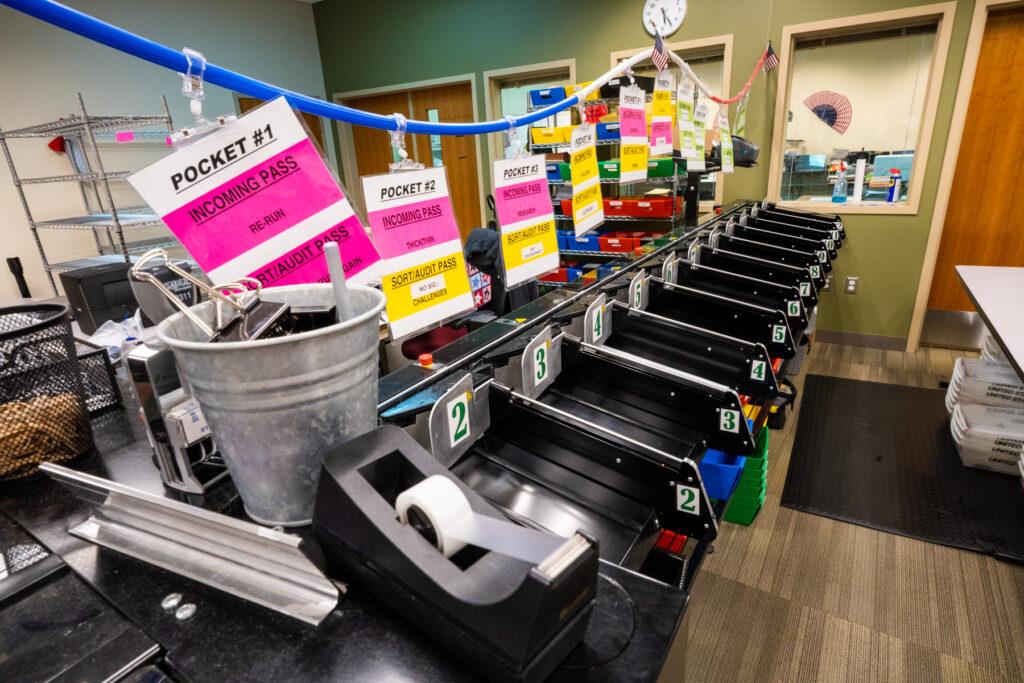
Warner: Last week, Heidi Ganahl, former CU Regent and Republican candidate for governor in 2022, held a press conference expressing trepidation about the voting process in Colorado. Let’s listen:
Heidi Ganahl: I'm very concerned that Colorado's elections are not quite the gold standard we proclaim, but a bit of fool's gold. So this leads to an all-important question about what will we do to help us feel more secure in the upcoming election, the November 5th election?
Warner: Ganahl went on to announce a drop box watch effort.
Ganahl: “And when I say we, there's a big group of very concerned citizens who are part of this effort. It's not just me, so I speak for all of you. So we plan on acting on this by launching a statewide effort to make sure our drop boxes are monitored according to the laws.”
Warner: "According to the laws," she says. Let's unpack that. How secure are drop boxes?
Crane: So drop boxes are very secure. They're all under camera. Every drop box in the state is under 24/7 video surveillance. A lot of counties, if not most counties, have upgraded the cameras and their capability over the last four years to make sure we're getting better resolution and better images. We have bipartisan teams that go out to sweep, to pick up the ballots from those ballot boxes every day in the metro area, and there are waivers for counties in smaller counties if they have a drop box that's far away. But certainly, as we get close to election day, they're picked up every single day by bipartisan teams. There's tight chain of custody around that, and all of these processes we keep working and improving. So ballot boxes are the most popular way that voters like to return their ballots here in Colorado, and they should continue to do so if they would like to, with great confidence that their ballot will get back to us and get processed in a timely manner. It is the fastest and most secure way for people to get their mail ballot back to us.
Warner: Does Ganahl's approach there, do you welcome it or do you just think it sows more doubt?
Crane: Well, so I think that the press conference in an article she had last week was incredibly reckless for a number of reasons. People have the ability to watch drop boxes, they have to be appointed by their political parties. They're not allowed to interfere with voters. But what is really disturbing, and again, reckless about what Heidi did is, at the end of her press conference, I understand that she asked for people to send money for potential legal fees in case they get arrested. Well, if you're following the law, why are you going to get arrested? And so what I'm afraid she's setting up is for, perhaps, some exchanges, perhaps, even violent exchanges at ballot drop boxes by people who are unprepared, don't know what they're looking at, and they're going to cause issues. So again, the whole exercise that she put on last week was reckless and irresponsible.





